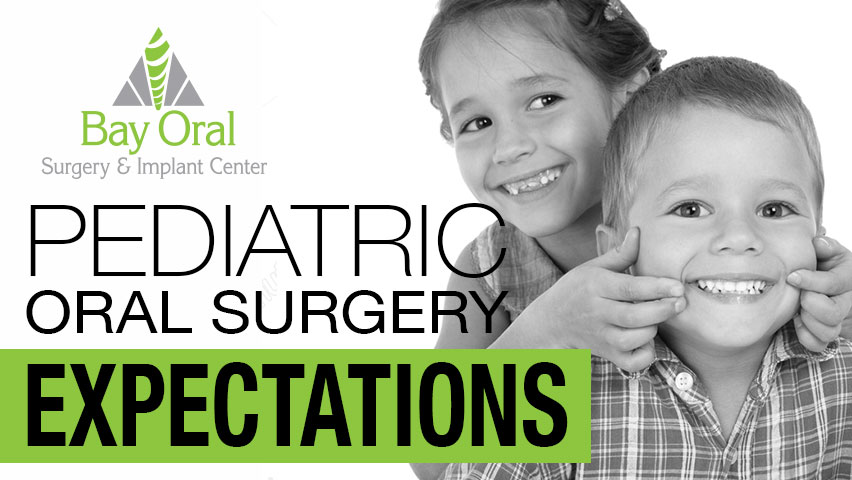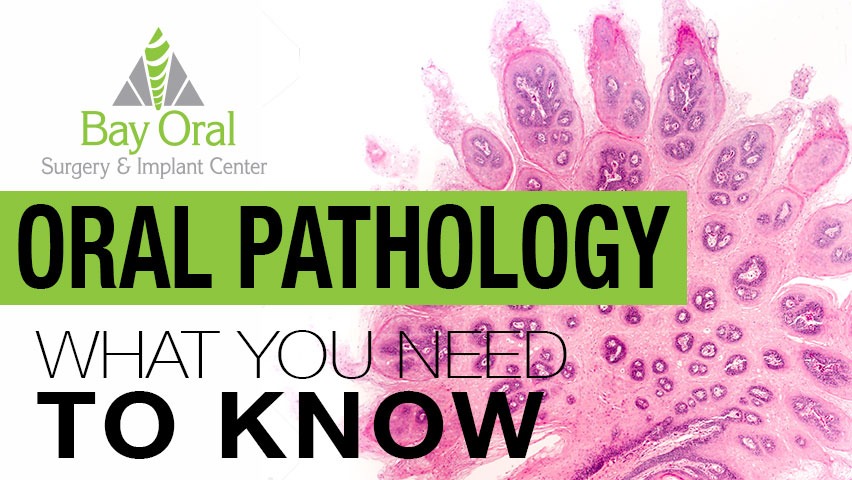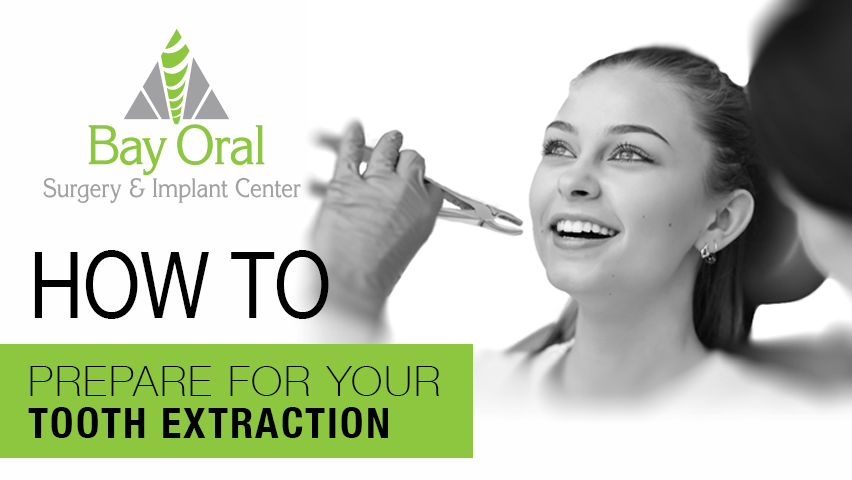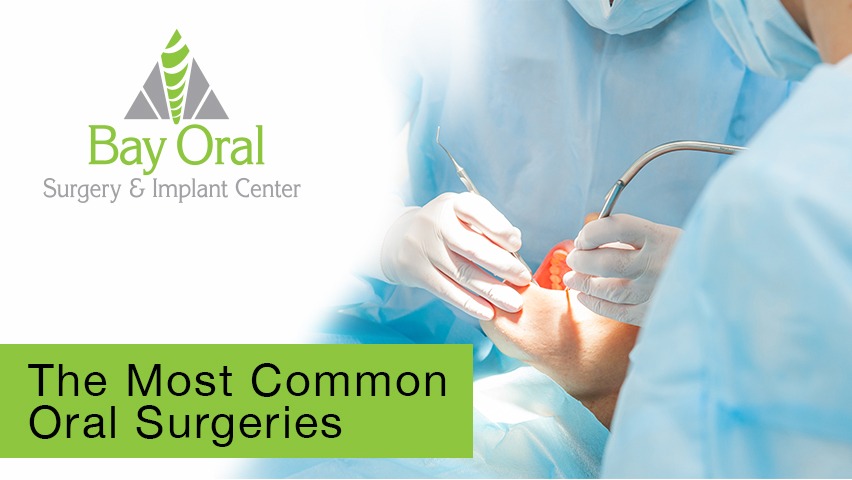
by Bay Oral Surgery | Oct 15, 2019 | Blog

Whether it’s due to an accidental injury or a planned tooth extraction, oral surgery may be necessary for your child at some point. And knowing what to expect for your child’s oral surgery will help reduce any anxiety you or your child may be feeling.
The most common oral surgeries performed on children and adolescents are tooth extractions, frenectomies, exposure of impacted or non-erupted permanent teeth, or for accidental injury or trauma to the teeth or face. If your child has recently been referred for oral surgery, here’s what you can expect from Bay Oral Surgery & Implant Center.
Before the procedure
If oral surgery is needed, it will most likely be recommended by your family dentist during your child’s regular dental checkup appointment. Your dentist will refer your child to an oral surgeon for more specialized treatment. When your dentist refers your child to an oral surgeon, they will provide the surgeon with all of the details regarding the situation and what treatment plan is recommended.
The next step will be visiting the oral surgeon. For children under age 12, or for children with health concerns, the oral surgeon will want to see your child for an exam prior to the procedure. This will ensure they have an accurate medical history and can review the procedure with you. They will explain what to expect, the steps of the surgery, the type of anesthesia that will be used, and answer any questions you may have. They will also provide you with pre-op instructions.
After the consultation, Bay Oral Surgery will check on your insurance coverage for the recommended treatment plan.
In the event of an emergency situation (ex. your child falls and injures a tooth), you should contact your dentist or an oral surgeon immediately and this process will be expedited.
During the procedure
On the day of the procedure you should have your child follow the pre-op instructions provided by the oral surgeon. A parent or legal guardian must accompany your child to the appointment and remain in the clinic for the length of the procedure. During the surgery your child will be under the specialized care of the oral surgeon and surgical assistants. The length of time for the procedure will vary depending on what is being done, but most oral surgeries take about an hour or less.
After the procedure
When the surgery is complete, Bay Oral Surgery will provide you with post-op instructions to follow specific to your child’s procedure. (You can also view our video series of post-op instructions on our website, here.) A parent or legal guardian will need to escort your child home. Your child should try to rest for the remainder of the day. You will be advised to have your child eat soft foods, such as soup and yogurt, until their mouth is feeling better. A follow-up appointment with your oral surgeon is usually not necessary unless recommended by the oral surgeon.
At Bay Oral Surgery & Implant Center we want to answer your questions and make sure you feel comfortable with the entire process, so we encourage you to ask any questions before, during or after the surgery. To get started, schedule your consultation here.

by Bay Oral Surgery | Sep 24, 2019 | Blog

Oral pathology is the diagnosis and study of the causes and effects of diseases affecting the mouth, jaw and face. Many patients visit an oral and maxillofacial surgeon for evaluation and treatment of oral pathology. Generally, these patients are first evaluated by their dental provider who refers them to an oral surgeon for further evaluation and treatment. The scope of oral pathology is extremely vast and oral pathologists, in addition to the dental provider and the oral surgeon, are needed for complete diagnosis, management, and treatment of lesions.
If a patient discovers a lesion such as an ulcer or a bump in the oral cavity, then addressing this lesion is a must.
When a patient presents to the oral surgeon, a thorough review of the patient’s history of the lesion, medical history, medications and supplements, social history, and allergies are reviewed very carefully. After that, the patient is evaluated clinically. The evaluation includes a complete head and neck examination with an oral examination and, in many cases, the use of photography to keep accurate records of the lesion.
Based on the assessment of the patient, the oral surgeon will decide if the lesion requires monitoring, medical management, or performing a biopsy for histopathological evaluation. The specimen obtained in a biopsy is sent to a laboratory where a pathologist will perform a microscopic evaluation and provide a written report that includes the diagnosis. Based on the diagnosis, the oral surgeon will devise a specific treatment for the patient.
A vast majority of oral pathologies are benign and may require simple intervention, medical management and continued monitoring by the dental provider.
One of the most common questions an oral surgeon is asked when evaluating a patient is regarding potential malignancies. Oral cancer, which is the most serious diagnosis in the oral cavity and the most concerning diagnosis for patients, is luckily very rare. Some of the risk factors for oral cancer are smoking, chewing tobacco, excessive alcohol consumption, and certain viral infections.
Although oral cancer is a serious diagnosis, it can be managed with a variety of surgical and non-surgical modalities. Early diagnosis and treatment will significantly improve the prognosis.

by Bay Oral Surgery | Aug 15, 2019 | Blog

There are many reasons why it may be necessary to have a tooth extraction. Some teeth need to be removed because of overcrowding in the mouth, infection, decay, or damage from a traumatic injury. Regardless of the reason for your tooth extraction, below are some tips to help you prepare.
What to Tell Your Surgeon Before A Tooth Extraction
Before the procedure, you will be asked to disclose the following information:
- Your complete medical history
- Any medications you are currently taking
What to Expect Prior to Your Surgery
Before your extraction, your dentist or oral surgeon will perform x-rays to assess the condition and placement of your teeth, which will be used to determine your treatment plan. Your surgeon will review anesthetic options with you prior to your surgery. Your oral surgeon will also fully prepare you for what to expect before, during, and after surgery. You may also be given other pre-surgery instructions to follow, which could include guidelines such as fasting before the procedure if deep sedation is requested.
For more information on preparing for your appointment, visit our webpage Your First Visit.
What to Expect on the Day of Your Surgery
Before the extraction, your oral surgeon will give you a local anesthetic to numb the areas surrounding the tooth that will be extracted. In some cases, deep sedation may also be administered. Your surgeon will review the typical process of the procedure with you and answer any last-minute questions you may have.
Schedule An Appointment
Do you have additional questions about how to prepare for a dental extraction? Schedule a consultation with one of our oral surgeons to review your options.

by Bay Oral Surgery | Jul 23, 2019 | Blog

There are many different types of oral surgery, ranging from wisdom teeth extractions to oral biopsies to corrective jaw surgery. Below is a description of the two most common oral surgery procedures.
Dental Extractions
There are three types of dental extraction procedures: simple extraction, surgical extraction, and impacted extraction. When your tooth is easily accessible, your dentist can usually perform a simple dental extraction to remove the tooth. If your tooth is hidden or more difficult to reach, such as a tooth broken off at the gum line, you will most likely require a surgical tooth extraction. An impacted tooth extraction is needed when your tooth fails to pass through the gum tissue due to something preventing its normal eruption, such as another tooth or dense soft tissue. If your tooth fails to emerge, or emerges only partially, it is considered to be impacted, which is the most difficult type of dental extraction.
Dental Implants
Another very common type of oral surgery is when dental implants are used to replace missing teeth. A dental implant is a titanium rod that is anchored directly to the jawbone to provide stability and support for one or more artificial teeth. The dental implant acts as a replacement for the root of a missing tooth to help preserve the natural jawbone, stimulate bone growth, and maintain facial structure. How dental surgery is performed depends on the type of implant and the condition of your jawbone, which an oral surgeon will assess before the procedure.
Request A Consultation
Whatever your oral surgery needs may be, it’s important to review all of your options by meeting with an oral surgeon. If you believe you’re in need of a dental extraction or dental implant, schedule a consultation.

by Bay Oral Surgery | Jun 15, 2019 | Blog

Medication-Related Osteonecrosis of the Jaw (MRONJ) is a condition that patients can experience if they are taking certain medications, such as medications normally prescribed for Osteoporosis. With the advancement of newer medications, additional drugs are added to the list of medications that can cause this condition such as Antiangiogenic drugs, commonly used in cancer treatment.
What is MRONJ?
It is a condition where the patient’s bone has necrosis (partial death of bone in the jaws). For a patient to be diagnosed with MRONJ, a specific criterion has to be met. This includes:
- Current or previous treatment with antiresorptive or antiangiogenic agent
- Exposed bone or a bone that can be probed through intra or extra oral fistula for a period of more than 8 weeks
- No history of radiation therapy to the jaws or obvious metastasis to the jaws
What are the most commonly used drugs that cause MRONJ?
- Bisphosphonate Medications: Fosamax, Actonel, Boniva and Zometa
- Antibody Agonist Medications (RANK ligated inhibitor Denosumab): Prolia and Xgeva
- Antiagiogenic Medications
- Other unknown drugs might also be involved in causing MRONJ
How common is MRONJ?
Luckily, MRONJ is not very common. If a patient is using oral medication, the risk is 0.01-0.04% of having spontaneous MRONJ. If surgery is performed, the risk increases. However, IV bisphosphonates are much more potent and have a risk of 0.8%-12% of causing MRONJ.
What should I do before starting a medication that can cause MRONJ?
It is very important to discuss the side effects of these medications with your medical provider and with your dental provider to minimize the future risk of developing MRONJ. Some of the guidelines are listed here on what needs to be done:
- Clinical dental exam that includes a panoramic radiograph
- Restore dentition
- Proper fit of removable prosthesis
- Remove abscessed and non-restorable teeth and teeth with severe periodontal disease and poor long time prognosis
- If systemic conditions permit, delay Bisphosphonate therapy for 21 days post-extractions
- Scheduled surveillance appointments
Can MRONJ be treated?
Yes, your Oral and Maxillofacial Surgeon is best equipped to manage a diagnosis of MRONJ. Depending on the severity of MRONJ and the patient’s unique medical history, a patient-specific treatment plan will be developed by the oral surgeon to manage MRONJ. The treatment plan can include a variety of interventions, ranging from monitoring and occasional use of pharmacologic agents to major debridement and even resection when needed. Therefore, patients who are taking a medication that can predispose them to MRONJ need to be closely managed by their dentist and oral surgeon to provide the optimum care and best outcome for patients with MRONJ. Prevention is always the key.
To learn more about MRONJ and the treatment options available to you, contact us or find a dentist near you on our website.






